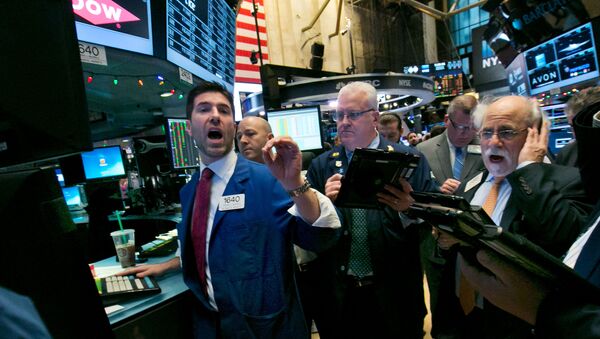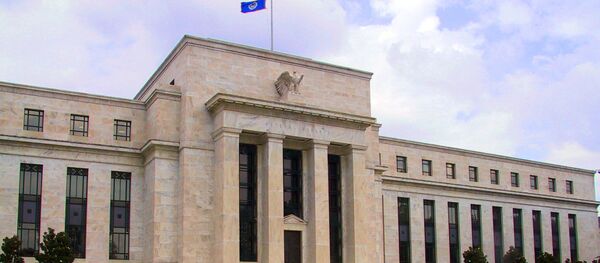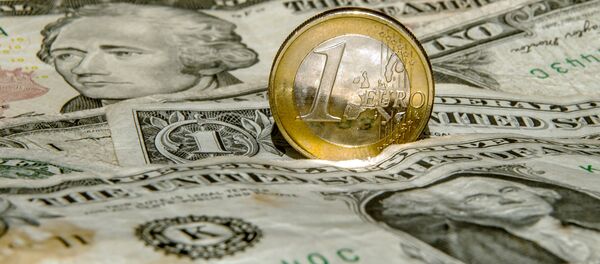Kristian Rouz — Global currency markets are feverishly volatile ahead of the US Federal Reserve policy decision due on 17 December, while a renewed drop in oil prices has pulverized commodity-dependent currencies, prompting several major central banks, including those of Russia and New Zealand, to postpone rate cuts and other stimulus measures. As uncertainty rises in currency trading, FX rate rebounds in select currencies have only added to the already rife volatility, rendering the markets extraordinarily sensitive to news affecting commodity prices and the policy decisions of major economies. Consequently, any sudden major event in this regard might significantly mar the economic prospects for almost any nation outside of the US-Eurozone-Japan club.
Bets favoring the looming Fed hike were supported by upbeat data from the US retail sector, boosting sales in the holiday season. US retail sales rose 0.3% in November after a 0.1% rise in October, according to US Department of Commerce data.
"A US rate hike is mostly a done deal and there's potential for some dollar buying," Masakazu Satou of the Tokyo-based FX brokerage Gaitame Online Co. said.
Most other currencies, however, were supposed to devalue amidst the global wave of monetary easing accompanying the central banks' struggle for international competitiveness, and, of course, yet another plunge in oil prices. Nevertheless, the euro and the Kiwi dollar were the two most prominent currencies to actually advance,e as their respective central banks either enacted less stimulus than had been expected, or postponed any stimulus measures at all.
The euro has risen about 3% against the dollar since December 3, when European Central Bank (ECB) President Mario Draghi introduced a much narrower new monetary stimulus plan for the Eurozone amidst the robust economic gains and aggressive expansion of German manufacturing. Most market participants, however, had expected the euro to reach parity with the dollar by Christmas due to widespread opinions regarding the Eurozone's economic weakness. Now, however, the euro bears are counting losses.
The New Zealand dollar unexpectedly advanced 1.7% against its US peer, from 0.6130 USD to 0.6753 USD, after central bank head Graeme Wheeler decided to decrease the base borrowing rate to its 2014 level of 2.5%, only erasing the effects of the previous four hikes. Kiwi bears had expected greater cuts, but, as Wheeler outlined, the stability of New Zealand's economic growth does not require further cuts.
According to the Parker Global Currency Manager Index, FX trading has become enormously risky, volatile and barely profitable during the past year due to a lack of predictability among the multiple factors involved in forming the currencies' FX rates. Commodity prices, central bank policies, and economic health are only the most evident among those factors, with minor decisions and events triggering huge moves in FX rates.
"It does seem that the central banks hope that the Fed will help them keep their currencies from rallying," Valentin Marinov of London-based Credit Agricole SA said. "They feel they need to preserve some of their ammunition for the future battles of the global currency war."
Bank of Korea left their interest rate unchanged ahead of the US Fed meeting, having stated they wanted to see the effects of the US monetary tightening on the the Korean economy before making any new decisions. The Bank of Russia left borrowing costs unchanged as well, in an attempt to support the national currency, the ruble, amidst the declining oil prices. Similar moves are expected from central banks of Sweden, Hungary and Czech Republic, who will gather for a policy meeting next week just ahead of the US Fed.



